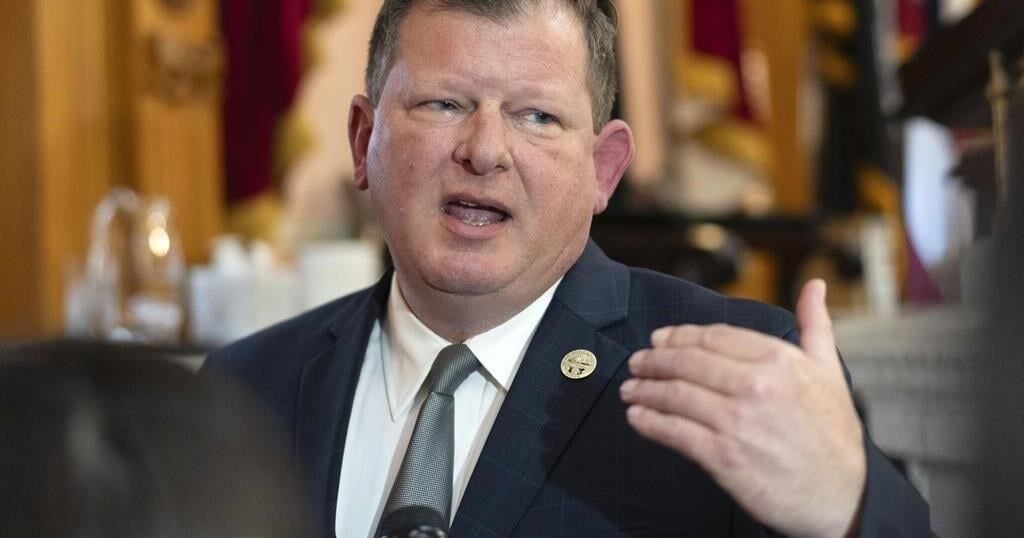COLUMBUS, Ohio (AP) — An appeals court has returned control of Ohio House Republicans’ campaign purse strings to Speaker Jason Stephens, but the Thursday ruling appeared to do virtually nothing to resolve a yearlong intraparty dispute.
On X, Stephens tried to strike a unifying tone after a three-judge panel of the 10th District Court of Appeals ruled unanimously to vacate a lower court order that had put a rival GOP faction in charge of the caucus campaign fund, known as the Ohio House Republican Alliance.
“Now that there is certainty, as Republicans, it is time to come together,” he wrote, pledging to help elect Republican candidates from presidential nominee Donald Trump on down the ballot and to defeat a redistricting ballot issue.
Republican Rep. Rodney Creech, a Stephens adversary, posted back that he was happy to see Stephens “finally supporting the House majority. This is the first time you have since you stole the gavel 20 months ago.”
In January 2023, Stephens surprised the GOP-supermajority chamber by winning the speakership with support from a minority of the Republican caucus — but all 32 House Democrats.
Republicans who supported speaker-apparent Rep. Derek Merrin — representing a caucus majority — rebelled in a host of ways. They tried to elevate Merrin as speaker anyway, to form a third caucus of their own, and then to take control of the campaign cash.
The rival group later acted independently to elect Rep. Phil Plummer to head the fund after Merrin launched a congressional bid, a decision never recognized by Stephens.
As significant lawmaking has languished during the feud, the group has continually argued that they represent most of the House majority caucus and should rule.
When Franklin County Common Pleas Judge Mark Serrott issued his preliminary injunction in June, he sided with that argument, saying majorities rule in a democracy and, therefore, when Ohio law says the “caucus” controls the fund, it means the group representing the most caucus members.
The appellate court disagreed.
The judges found that position lacked “any perceptible statutory permission.” They also said it isn’t the judiciary’s place to get involved in the political inner workings of another branch of government.
“Courts are not hall monitors duty-bound to intervene in every political squabble,” Judge David J. Leland, a former state representative and state Democratic chairman, wrote. The other two judges concurred.
They declined to resolve the central question in the dispute: what the statute means by “caucus.”
“All the statute tells us is the caucus must be in control of its LCF (legislative caucus fund) — but that advances the analysis only so far,” the opinion said. “Both appellants and appellees are members of the House Republican caucus, both with competing claims to lead the caucus.”
In a statement, Plummer rejected the court’s position. He said he has been operating the alliance “pursuant to a clear statute” and that the decision will have “no practical effect.”
Plummer said he has retained four full-time staffers and campaign managers in every targeted race “and that work will continue.”
Plummer is an ally of the president of the Ohio Senate, Republican Matt Huffman, who is term-limited and running unopposed for a House seat this fall. Huffman is expected to challenge Stephens for the speakership in January.
This spring, they successfully picked off several Stephens allies in Republican primaries — though came one vote shy of being able to oust him.
